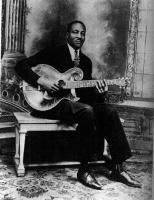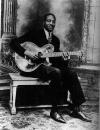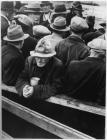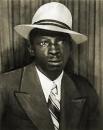Starvation in my kitchen
Rent sign's on my door
And if my luck don't change
I can't stay at my home no more
And I got up this morning
Just about the dawn of day
Mean I ain't got no job
I ain't got no place to stay
Lord I walked to a store
I ain't got a dime
When I asked for a darn neckbone
The clerk don't pay me no mind
Lord Lord
Mama some old rainy day
Mean my luck going to change
And I going to be treated this a way
Rent sign's on my door
And if my luck don't change
I can't stay at my home no more
And I got up this morning
Just about the dawn of day
Mean I ain't got no job
I ain't got no place to stay
Lord I walked to a store
I ain't got a dime
When I asked for a darn neckbone
The clerk don't pay me no mind
Lord Lord
Mama some old rainy day
Mean my luck going to change
And I going to be treated this a way
Contributed by Bernart Bartleby - 2016/1/14 - 10:31
×
![]()
Note for non-Italian users: Sorry, though the interface of this website is translated into English, most commentaries and biographies are in Italian and/or in other languages like French, German, Spanish, Russian etc.








Scritta da Broonzy all’inizio della sua carriera musicale a Chicago.
Da notare che questo blues su disoccupazione e fame data un anno prima del crollo di Wall Street…
Nella raccolta “The Young Big Bill Broonzy 1928-1936”, pubblicata nel 1968
With real foresight, Broonzy captured the economic desperation approaching on the nation’s horizon in his “Starvation Blues,” written in 1928, a year before the stock market crash of October 1929. Even before the Depression struck with full force, the black community was in deep trouble and their growing poverty carried a warning of hard times to come for the rest of the nation.
Big Bill Broonzy’s “Starvation Blues” painted a stark picture of the hunger and evictions that were about to sweep an unsuspecting nation.
“Starvation Blues” packs the entire devastation of the coming economic collapse into a few concise lines that warn about how unemployment would trigger a series of economic woes: hunger and difficulty in paying the rent, followed by eviction notices and, finally, homelessness. He described this chain reaction of poverty even before millions were thrown out of work during the Depression.
(estratto da Blues from the Streets of ‘The Other America’, di Terry Messman)